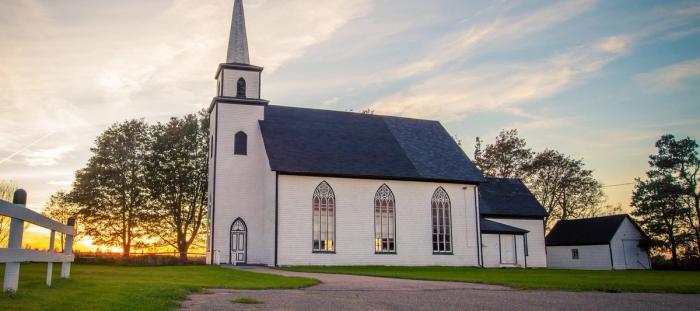One of Paul’s most iconic phrases is the oft-repeated text from 1 Corinthians 13: “And now these three remain: faith, hope and love. But the greatest of these is love.” This triad of virtues is used often by Paul (Colossians 1:3-5; 1 Thessalonians 1:3, 5:8; Romans 5:1-5; Galatians 5:5-6; 1 Peter 1:3-8). But here in the midst of the famous “love chapter,” Paul raises his volume and declares that love is the greatest.
What is Paul getting at?
We can say that Paul, by asserting the centrality of love in a Christian’s life, is consistent with the teachings of Jesus. Jesus famously said that the entire body of God’s law can be summed up by love─love for God and love for neighbors (Matthew 22:37-40)─and instructed his followers to be defined by love (John 13:34-35). So when Paul here and in other places (Romans 13:8-10; Galatians 5:14) asserts the primacy of God’s love, he is echoing the teachings of Jesus.
But why are Jesus and Paul placing love as the highest of all virtues? Here are three reasons:
First, love is virtue behind the other virtues, and it is what gives life to our spiritual gifts. This is what Paul is getting at in 1 Corinthians 13.
I have to admit that this passage convicts me afresh every time I read it. I’ve been in Christian ministry all of my life. I love the church. I love the work of the church. But Paul reminds me that all of this important kingdom work—my gifts, my talents, my sacrifices—means nothing if they are not motivated by love: love for God that extends to love for people.
I don’t know if you’ve noticed this or not, but there are times when I come into contact with a Christian whose life is just an overflow of love. This doesn’t mean they are weak or spineless or don’t care about truth. Paul was none of those things; he was willing to call out heresy and sin without fear. But Paul was a Christian, and if you came into contact with him, he radiated love. I’ve met people like that. You know they are in the Word. You know they are on their knees in prayer, and their first instinct is to do all they do out of love for God and love for God’s people.
This is why Paul says love is even greater than faith and hope. Faith and hope are vital. Faith is, to paraphrase the writer of Hebrews, what pleases God (Hebrews 11:6). And hope is what gets us through life in a fallen, often hopeless world. But love is what fuels our faith. We have faith in Jesus because we love him. And love is what gives us hope. We know that one day we will see, face to face, the One we love.
Second, love is the greatest because God is love. Love is the highest virtue because it leads us to God, who embodies love. The apostle John says:
Beloved, let us love one another, for love is from God, and whoever loves has been born of God and knows God. Anyone who does not love does not know God, because God is love. (1 John 4:7–8 ESV)
In other words, love isn’t merely an attribute God exhibits; love originates with God. So when God’s people love well, they reflect God himself. It is the one thing that distinguishes us as being regenerated. Sinners don’t naturally love well. In our fallen state, our bent is toward self-worship. We can only love well if we’ve been changed, reborn, transformed. This is why Paul elevates love above the other virtues—it is a sign of those who are his.
Lastly, while faith and hope will one day vanish when Jesus returns, love will remain. In this passage, Paul is contrasting what is temporary and what is permanent, what is elementary and what is mature, what is here and what is to come. Faith, defined by the writer of Hebrews, is “the evidence of things not seen” (Hebrews 11:1). When Jesus returns and we are enjoying life together with him in the New Jerusalem, our faith will be sight (to quote the famous hymn “It is Well with My Soul”). Faith will not be necessary because we will see the one upon whom our faith rests.
Hope is the confident expectation of God’s faithfulness and future promises. It is not, as we commonly think, a kind of wishful thinking: I hope that happens.It’s something grounded in a more sure word. To quote John Piper, “Christian hope is when God has promised that something is going to happen and you put your trust in that promise.” When Jesus consummates his kingdom, everything we have hoped for will be realized. Then hope will not be necessary.
But love endures. Love is an attribute that was shared among the Godhead before the world began. Our ability to love, so marred by the fall and shot through with our own selfishness, will finally be perfected when we are fully sanctified in Heaven.
So what does it mean practically for us to value love above all things? I think it should first remind us of why we followed Jesus in the first place. We love because he first loved us, and this love, “shed abroad in our hearts,” sends us out into the world. When we lose this motivation for service, we can quickly grow stale in our service and live off of our gifts without really relying on the Spirit of God. A lack of love can lead to a sense of entitlement, and we treat our fellow believers as mere obstacles to our own advancement. We can abuse authority and power when we fail to love as God loves.
This passage in 1 Corinthians 13, then, is not simply a nice passage to put on wall calendars and mugs, but a warning shot to believers, to a church that had become a cesspool of selfish ambition and sin. Paul says to them and to us, if you’ve lost love, you’ve lost everything.






